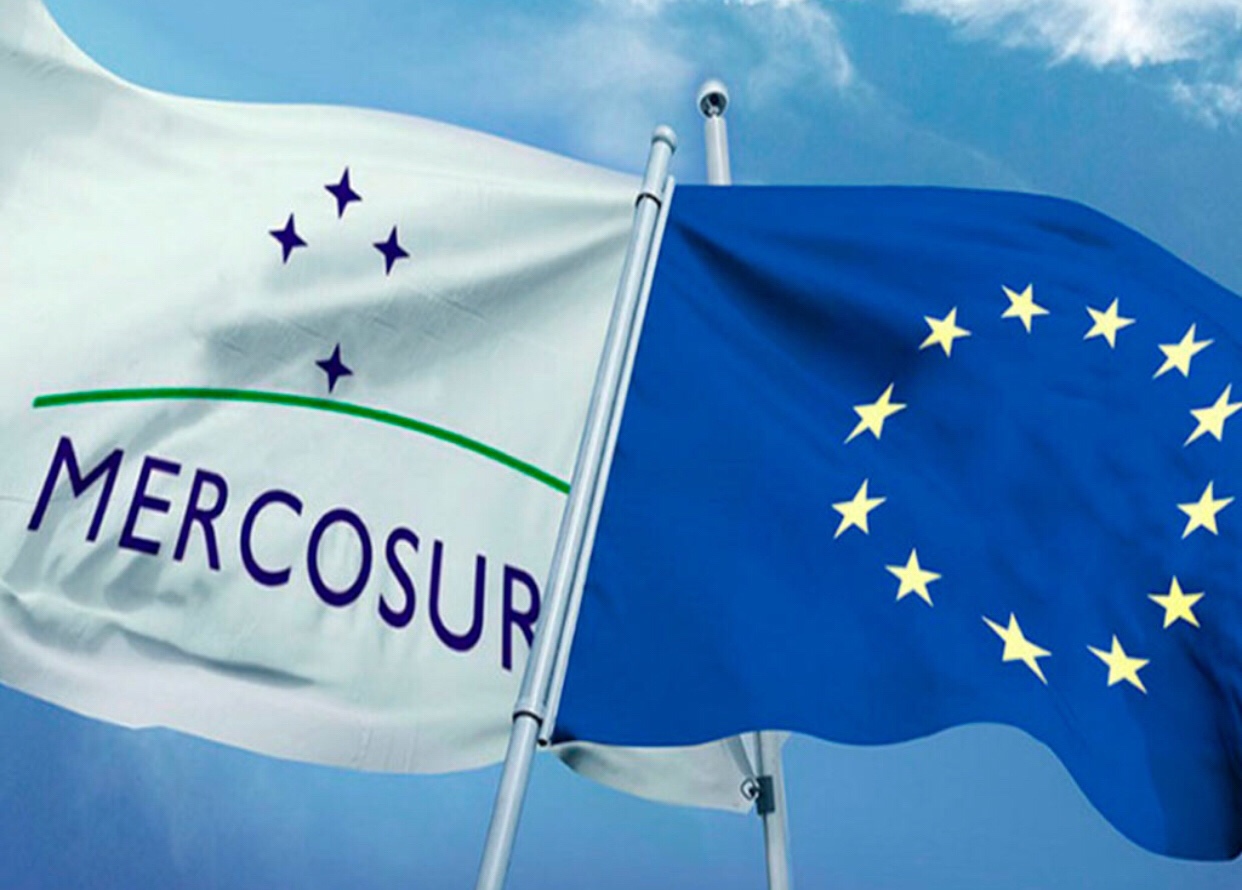EU and Mercosur Negotiators Set Target Dates for Trade Talks
Negotiators and ministers from the EU and Mercosur held a series of meetings this month in Brussels, Belgium, to take stock of their efforts to develop a trade accord, along with whether they should set a new target date for wrapping up the talks before the end of 2018.
The meetings were held on the sidelines of a separate ministerial meeting between the EU and the CELAC countries, with the latter acronym referring to the Community of Latin American and Caribbean States. CELAC is a regional bloc of 33 countries spanning from Mexico in North America to Central and South America, as well as the Caribbean. The EU-CELAC meeting also touched on trade, as well as various other areas of inter-regional cooperation.

Negotiators working on the EU-Mercosur accord had previously met in Montevideo, Uruguay, in June with a view to advance technical work. Prior to the latest meetings in Brussels, EU Agriculture Commissioner Phil Hogan had ruled out the possibility of the two sides announcing an agreed outcome this month.
The EU-CELAC meetings, meanwhile, led to a joint declaration entitled “Building bridges and strengthening our partnership to face global challenges” that included references to “the importance and ratification and full implementation of existing Association and Trade Agreements between the EU and CELAC partners and the successful conclusion of ongoing negotiation processes between the EU and some CELAC countries and regions.”
It did not specify any timeline for doing so, however. All four Mercosur countries – Argentina, Brazil, Uruguay, and Paraguay – are part of the broader, 33-country CELAC group.
Following the Brussels meetings last week, delegates from both the EU and Mercosur have offered divergent opinions on the timeline for negotiations. Argentine Foreign Minister Jorge Faurie said on 19 July in a press statement that “the effort that both blocs made now clearly leaves us at the start of the final negotiating stage.”
He also suggested that some sort of outcome could emerge “following the European summer break” and said that the talks in Brussels had led to “much progress in the automotive sector, in automobile parts, and in agriculture.”
Faurie also cautioned trade watchers against focusing solely on the more sensitive aspects of the talks, saying that the EU-Mercosur deal is “not solely about automobiles, nor geographical indications, agricultural products and rules of origin.”
“It’s all of those chapters in conjunction with various others,” he said, noting both the potential commercial scope and ambition of a final accord. For example, he said, a completed deal would have economic weight surpassing that of the EU’s largest signed trade accords, those with Japan and Canada, the latter of which is provisionally in force.
Meanwhile, European officials have indicated that they are not in a position to announce a timeframe, given the various items remaining on the negotiating agenda.
A spokesperson for the European Commission told the EurActiv news outlet 23 July that “it is too early to say when a political deal could be reached.”
During a separate meeting of G20 finance ministers over the weekend in Buenos Aires, Argentina, French Finance Minister Bruno Le Maire said that farm trade remains a sensitive negotiating issue, and called on his Mercosur colleagues to clarify and present a unified position, according to comments reported by the same media outlet.
The questions over timeframe come as major players in the negotiations prepare for elections, such as Brazil this October, and Argentina and Uruguay next year. The European Parliament will also have elections in 2019, while a new European Commission is due to be chosen and take office.
Despite the mixed assessments over a trade deal timeframe, negotiators have reported progress on a series of substantive areas in recent months. In addition to the advances noted by Faurie, a report by the European Commission on the Montevideo meetings last month included a reference to an agreed text on export competition and agricultural cooperation.
The report also noted progress in rules of origin, an annex on wine and spirits, various aspects of sanitary and phytosanitary measures (SPS), and the conclusion of a chapter on telecoms. They are also well advanced on an e-commerce chapter, according to the Commission.
Areas that remain challenging, however, include regulatory cooperation, public procurement market access, various aspects of a planned intellectual property rights (IPRs) chapter, domestic support, and market access in goods trade.
Media reports suggest that the two sides, despite the advances announced by Faurie earlier this month, still have much work to do to address diverging views on ethanol trade, agricultural market access, and automobile tariff and non-tariff issues, among others.
You must be logged in to post a comment.